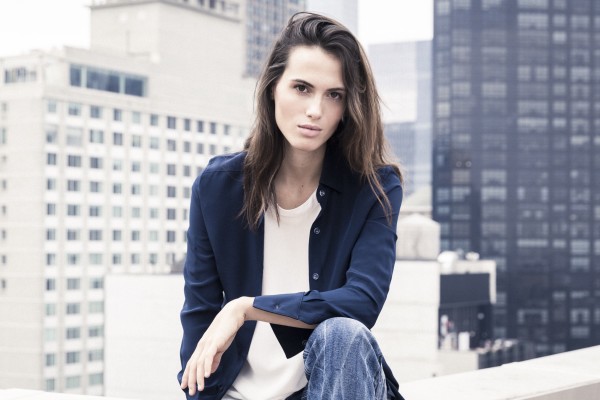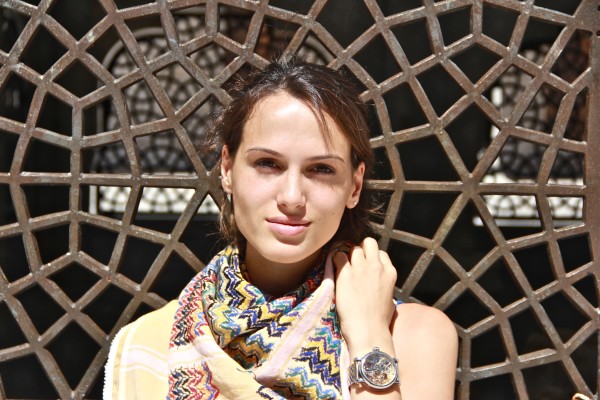
05 Mar The Short Version: Commercial Drones & Privacy
The point of it all is to break down the headlines, the week’s most controversial issues, determine why a particular issue is important to you, and reveal the best arguments on each side of the story.
By reading Cleo Abram’s The Short Version, you join a vibrant group of people with two simple beliefs: 1) Every important issue can and should be discussed in a way we all can understand; 2) Understanding both sides makes us more thoughtful and our views more informed.
In some of the most recent iterations of The Short Version, Cleo Abram looked at sanctuary cities wondering whether or not they should comply with the president’s order. She asked: Is the winner-takes-all rule in effect in most states (except Maine and Nebraska) constitutional? This week, Cleo the question on the table is about the drone industry. Should it be strictly regulated to protect privacy?
Note: In general, if you have missed any of Cleo’s blogs, just go to our Home Page, type “The Short Version” into Search (magnifying glass icon) and poof, like magic, all her blogs will appear.
“I love getting feedback every week—thank you! If you want come hang out, debate a thing or two, and meet other Shorties, check out Short Events,” says Cleo. “Or if you have a topic you’d be interested in guest writing, just let me know! Let’s make it happen.”

Cleo Constantine Abram of the “Short Form,” offering densely packed spins on issues of national and global importance.
What’s happening?
The next four years will be crucial to our ability to develop and control automated technology—in particular, self-driving cars and commercial drones.
In August, new regulations came into effect to govern the use of commercial drones. These rules only apply to commercial drones with human pilots, as opposed to automated drone delivery systems like the one Amazon is developing.
While these rules do limit commercial drone use in some ways, the regulations were largely seen as a victory for drone users. Previously, commercial operators needed a hard-to-get pilot’s license. As the spokesman for DJI, a major drone company, explained, “it means that businesses and farmers and government agencies and academic researchers can put drones to work without having to get an airplane pilot’s license or follow other onerous rules.”
These rules were issued by the Federal Aviation Administration (FAA), which is part of the Department of Transportation.
Enter Elaine Chao, President Trump’s newly confirmed Secretary of Transportation. Secretary Chao now has the power to make decisions about automated technology—including commercial drones—that will have enormous effects on the American economy and people’s daily lives.
Why is it important?
It is not hyperbolic to say Secretary Chao’s choices will change the course of history.
If she regulates the fast-moving industry too tightly, she risks stifling a vital part of our country’s future economy—and giving other countries a competitive advantage.
If she deregulates or refuses to put parameters around new technologies, she could cause serious problems for personal privacy and transportation safety—not to mention leaving companies like Amazon without the regulations they feel they need to succeed.
One area the FAA did not cover and many are now looking to Secretary Chao to address as drones become more and more common: personal privacy.
Debate it!
Should we regulate the drone industry more strictly to protect privacy?
Continue reading the pro and the con here.
More about Cleo Constantine Abram:

Cleo grew up in Washington D.C., lives in New York City, and loves to visit her parents in Telluride. She authors “The Short Version,” a newsletter that explains each week’s most important issue and both sides of the debate around it.
Cleo is a digital strategist now working at Vox, a general interest news site for the 21st century. Its mission is simple: Explain the news. Politics, public policy, world affairs, pop culture, science, business, and more.
Cleo’s work focuses on ways to share, educate, and inform using online platforms. While in college at Columbia University, she guided the school’s entrance into online education through her role as the youngest elected representative to the Columbia Senate, which makes university-wide policy.
She continued her work on online education at TED-Ed, the educational branch of the nonprofit, building new programs and online tools to support high school teachers worldwide.
Continuing her work with TED, Cleo founded and led an early TEDx conference, the organization’s community-specific series.
Most importantly, Cleo loves to ski.


Sorry, the comment form is closed at this time.